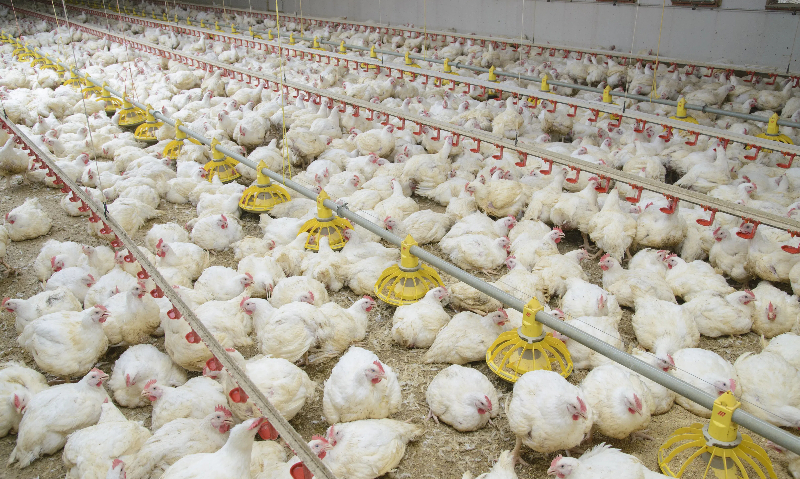A Beginner’s Guide to Poultry Farming in Benin
Time : 2024-10-16
Poultry farming is a rapidly growing industry in Benin, providing significant economic opportunities for both smallholders and larger commercial enterprises. For anyone looking to venture into this field, having a clear understanding of the essentials is crucial. This Beginner’s Guide to Poultry Farming in Benin will cover key aspects such as types of poultry farming, necessary equipment, management practices, and the financial implications involved.
Understanding Poultry Farming in Benin
Poultry farming encompasses various species, including chickens, ducks, turkeys, and guinea fowl. In Benin, chicken farming is particularly popular due to the high demand for both eggs and meat. The country’s favorable climate and diverse agricultural landscape make it an ideal location for poultry farming.
Farmers can choose between two main systems: extensive and intensive poultry farming. Extensive farming involves raising birds in free-range conditions, while intensive farming relies on controlled environments to optimize production. Understanding these systems is vital as they influence management practices, costs, and overall productivity.
Types of Poultry Farming
As part of this Beginner’s Guide to Poultry Farming in Benin, it’s essential to explore the different types of poultry farming:
- Layer Farming: Focused on producing eggs, layer farms rear hens that are bred specifically for high egg production. This system requires careful feed management and appropriate housing to ensure optimal laying conditions.
- Broiler Farming: Broiler farms raise chickens specifically for meat production. These birds grow quickly and require specific breeds, nutrition, and management to maximize weight gain and minimize feed conversion ratios.
- Mixed Farming: Some farmers prefer to operate mixed farms, where both layers and broilers are raised. This allows diversification in revenue streams but requires more complex management.
- Free-Range vs. Cage Systems: Free-range systems allow birds to roam outdoors, promoting natural behaviors and healthier livestock. Cage systems, on the other hand, provide controlled environments for increased biosecurity and easier monitoring of health.
Essential Equipment for Poultry Farming
In this Beginner’s Guide to Poultry Farming in Benin, having the right equipment is crucial for successful operations. Here are some essential items:
- Housing: Proper housing protects birds from predators and harsh weather. Well-ventilated coops with adequate space help prevent overcrowding and stress among birds.
- Feeding Equipment: Feeders should be designed to minimize waste and ensure all birds have access to nutritious feed. Automatic feeders can save time and labor.
- Watering Systems: Clean, fresh water is critical for poultry health. Watering systems should be easy to maintain and provide constant access.
- Egg Collection Systems: For layer farms, automated egg collection systems can enhance efficiency and minimize breakage during handling.
- Heating and Cooling Solutions: Climate control is vital, especially for young chicks. Heaters or cooling fans may be necessary depending on the season.
- Biosecurity Equipment: Measures such as footbaths, hand sanitizers, and protective clothing help prevent disease outbreaks.
Investing in quality equipment not only improves productivity but also enhances the overall welfare of the birds.

Management Practices
Management practices play a critical role in poultry farming success. Here are some key considerations in this Beginner’s Guide to Poultry Farming in Benin:
Nutrition
Providing balanced, nutrient-rich diets is essential for optimal growth and egg production. Farmers should work closely with livestock nutritionists to formulate feeds that meet the specific needs of their birds based on age, type, and production goals.
Health Care
Regular health check-ups and vaccinations are crucial in preventing diseases. Farmers should establish a routine veterinary care schedule and stay informed about common poultry diseases affecting the region.
Record Keeping
Maintaining accurate records of feed consumption, production rates, and health issues helps track performance and identify areas for improvement. This data is invaluable for making informed management decisions.
Biosecurity Measures
Implementing biosecurity protocols is critical to minimizing disease risks. This includes restricting access to the farm, regular cleaning and disinfection of equipment, and ensuring that new birds are quarantined before introduction to the existing flock.
Challenges in Poultry Farming
Like any agricultural venture, poultry farming in Benin comes with its share of challenges. Some common obstacles include:
- Disease Outbreaks: Avian influenza and Newcastle disease are prevalent concerns that can decimate flocks if not properly managed. Farmers must stay informed about disease outbreaks and maintain strict biosecurity measures to protect their birds.
- Market Fluctuations: Prices for poultry products can vary due to market demand, competition, and seasonal fluctuations. Staying aware of market trends and developing relationships with buyers can help mitigate risks associated with price changes.
- Access to Quality Feed and Inputs: In some areas, sourcing high-quality feed and veterinary supplies can be challenging. Building a network of reliable suppliers is essential for ensuring consistent production and maintaining bird health.
- Climate Challenges: Extreme weather conditions, such as droughts or heavy rains, can impact feed availability and bird welfare. Implementing proper housing and climate control measures can help mitigate these effects.
Conclusion
In summary, this Beginner’s Guide to Poultry Farming in Benin provides an overview of the fundamental aspects required to start and operate a successful poultry farm. From understanding different types of poultry farming to investing in essential equipment and implementing effective management practices, aspiring farmers can position themselves for success in this lucrative sector.
While challenges exist, thorough planning, continuous learning, and leveraging available resources can significantly improve the chances of success. Engaging with local agricultural extension services, joining poultry farmer associations, and participating in training programs can provide additional knowledge and support.











